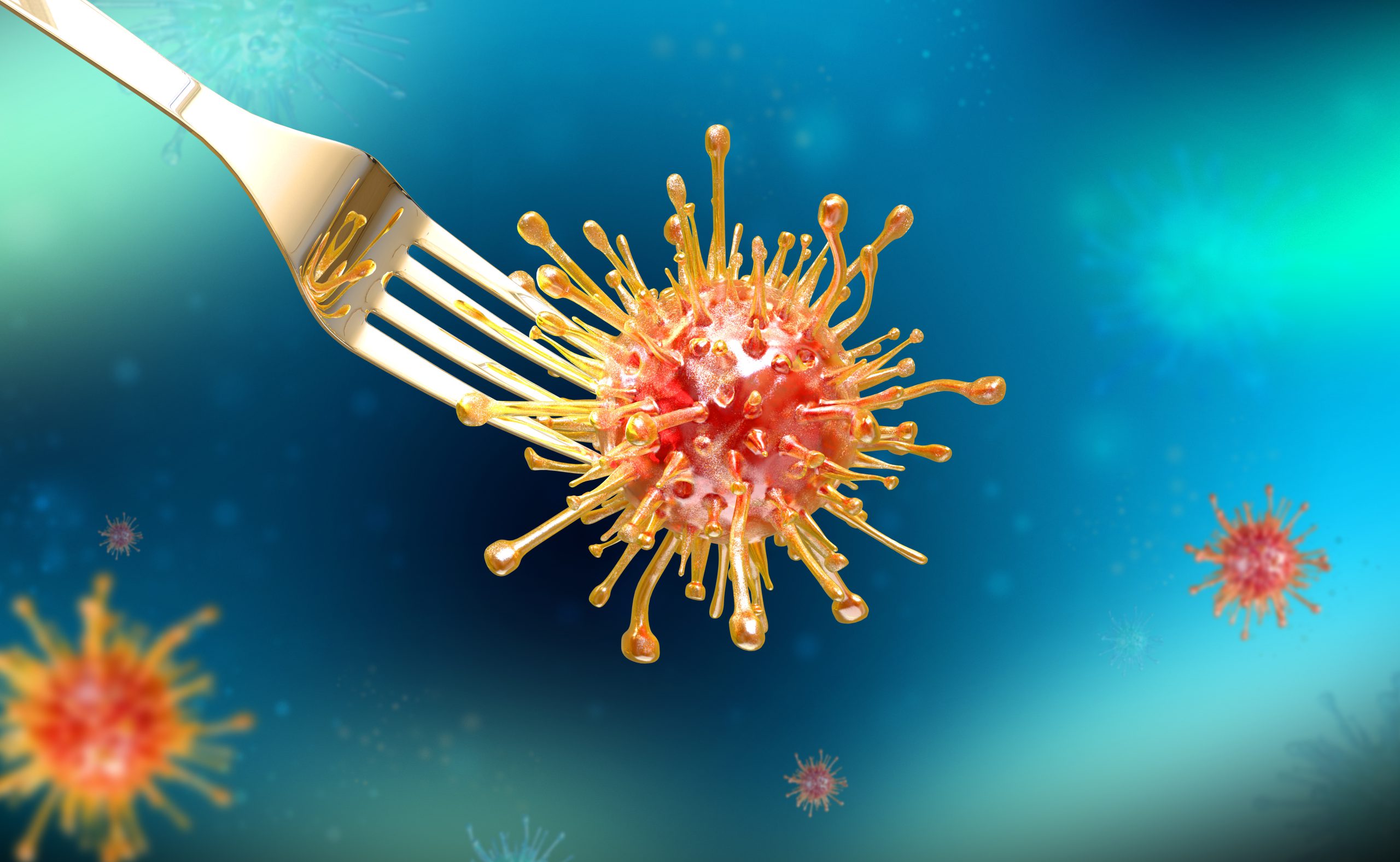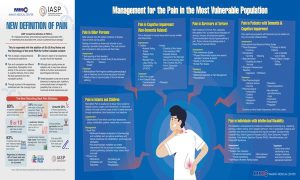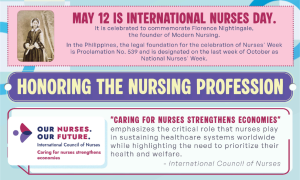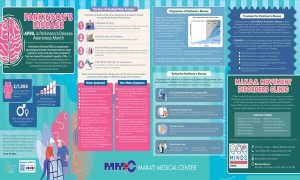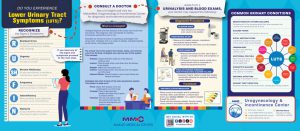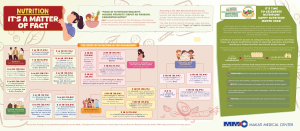Food poisoning is a common illness borne out of consuming contaminated food or drinks, essentially because of the harmful bacteria, viruses, parasites, or toxins they contain. People suspected of food poisoning are likely to experience symptoms that range from mild stomach discomfort to vomiting and diarrhea, and these symptoms tend to last differently for everyone.
This is becausethe duration in which the effect of food poisoning persistsis influenced by the type of bacteria or virus that caused it, as well as factors like age and overall health.Notably, this can help people understand what to expect of food poisoning and how to care for themselves and others who may have been infected.
Read on to learn what causes food poisoning, how long it typically lasts, and what to do if you or someone you know is experiencing its symptoms. The article will also provide tips on how to prevent food poisoning from occurring in the first place.
Causes of Food Poisoning
Food can become contaminated at any point during food production and distribution, including harvesting, processing, transportation, storage, or preparation. Food poisoning can be caused by a variety of factors, including:
- Bacteria such as Salmonella, E. coli, and Campylobacter
- Viruses such as norovirus and rotavirus
- Parasites such as Cryptosporidium and Giardia
- Toxins produced by bacteria such as Clostridium botulinum, which causes botulism, or marine organisms such as shellfish containing toxins.
Common Symptoms of Food Poisoning
While symptoms of food poisoning vary depending on the type of bacteria, virus, parasite, or toxin involved, below are the most common symptoms —which would usually appear within a few hours to a few days after consuming contaminated food or water:
- Nausea and vomiting
- Diarrhea
- Abdominal pain and cramps
- Fever
- Headache
- Muscle aches
How Long Does Food Poisoning Last?
Incubation period
The incubation period for food poisoning refers to the time between consuming contaminated food or water and the onset of symptoms. The length of the incubation period can varyalso depending on which bacteria, virus, parasite, or toxin caused food poisoning.
But generally, the food poisoning incubation period ranges from a few hours to several days. Here are some causes and their typical durations:
- Campylobacter – 2 to 5 days
- Cryptosporidium – 2 to 10 days
- coli – 3 to 4 days
- Giardia lamblia – 1 to 2 weeks
- Hepatitis A – 15 to 50 days
- Norovirus – 1 to 2 days
- Rotavirus – 1 to 2 days
- Salmonella – 6 hours to 6 days
- Sapovirus – 1 to 3 days
- Shigella – 1 to 2 days
- Trichinella – 1 to 2 days
- Vibrio vulnificus – 2 to 48 hours
In general, most cases of food poisoning last a few days to a week. However, some cases can last longer.
Factors Affecting the Length of Food Poisoning
- Age: Young children, older adults, and people with weak immune systems may experience more severe symptoms and have a longer recovery time.
- Type and amount of contaminant: Some types of bacteria, viruses, parasites, or toxins are more virulent than others, and a higher dose of contamination can lead to more severe symptoms and a longer duration of illness.
- Overall health: Generally healthy people may recover more quickly from food poisoning than those with underlying health conditions.
- Treatment: In some cases, antibiotics or other medical treatments may be necessary to treat the infection and speed up recovery.
What To Do If You Have Food Poisoning
If you or someone you know has food poisoning, the following self-care measures can help alleviate symptoms and promote recovery:
- Stay hydrated: Drink plenty of clear fluids such as water, broth, or electrolyte drinks to replace fluids lost through diarrhea and vomiting.
- Rest: Get plenty of rest to help the body recover.
- Avoid solid foods: Avoid solid foods until vomiting and diarrhea have subsided. Once symptoms improve, gradually reintroduce bland, easy-to-digest foods such as toast, rice, or bananas.
- Use over-the-counter medications: Over-the-counter medications such as anti-diarrheal medications or pain relievers may help alleviate symptoms but should only be used under the guidance of a healthcare provider.
When to Seek Medical Attention
While at-home treatments help in managing food poisoning, there are instances when one would need to seek medical attention. Do not hesitate to reach out to a doctor if along with food poisoning,you or someone you know are experiencing any of the following:
- High fever (above 103°F or 39.4°C)
- Dehydration (symptoms include dry mouth, thirst, reduced urine output, or dark-colored urine)
- Neurological symptoms (such as double vision, muscle weakness, or difficulty speaking)
- Blood in the stool or vomit
Pregnant women especially need medical help as food poisoning can be especially dangerous for them.
How to Prevent Food Poisoning
Reduce the risk of contamination by doing these things:
- Wash hands thoroughly with soap and water before handling food and after using the bathroom or changing diapers.
- Cook food thoroughly, especially meat, poultry, and eggs.
- Keep food at safe temperatures (below 40°F or above 140°F) to prevent the growth of harmful bacteria.
- Avoid cross-contamination by separating raw meat, poultry, and seafood from other food.
- Use clean utensils, cutting boards, and surfaces when preparing food.
- Avoid eating or drinking unpasteurized products, such as raw milk or unpasteurized juice.
Staying One Step Ahead of Food Poisoning
Arming oneself with the knowledge of what causes food poisoning and taking appropriate precautions can go a long way in preventing food poisoning.In general, observebasic food safety practices such as washing yourhands before eating, cooking food thoroughly, and avoiding cross-contamination of food.
If you or someone you know is experiencing symptoms of food poisoning or have concerns about food safety, don’t hesitate to seek medical advice from the experts at Makati Medical Center. Our team of experienced healthcare professionals is equipped to diagnose, treat, and manage various conditions, including food poisoning.
With state-of-the-art facilities and personalized care, Makati Medical Center is committed to helping you and your loved ones stay healthy and safe.

